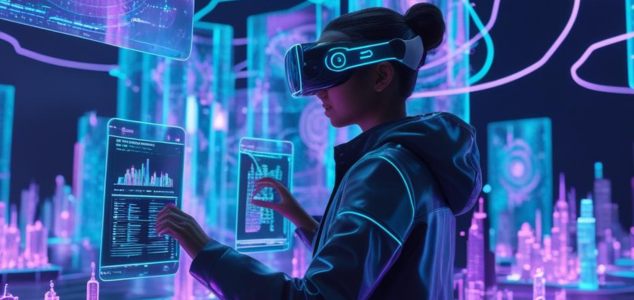Virtual Reality (VR) is a simulated experience that transports users into a computer-generated environment. Using VR headsets and motion controllers, users can explore immersive 3D worlds that feel incredibly real — whether it’s walking on Mars, painting in 3D space, or playing lifelike games. It’s not just science fiction anymore — it’s science fact.
Why is Virtual Reality Important?
VR has evolved from being just a gaming trend to a revolutionary technology impacting multiple industries. It allows people to interact with digital environments in ways never before possible.
Here’s how VR is transforming various fields:
🏥 1. Healthcare
Doctors now use VR to perform remote surgeries, train medical students, and treat phobias or PTSD. VR simulations help in understanding complex surgeries and anatomy without real-world risks.
🏫 2. Education
Students can now take virtual field trips to the pyramids, explore the solar system, or witness historical events — all from their classroom. It turns learning into an interactive and fun experience.
🏢 3. Business & Training
Companies use VR for onboarding, safety drills, and customer simulations. It's helping employees get hands-on training without any real-world consequences.
🛍️ 4. E-commerce
Imagine trying clothes virtually or checking how a couch looks in your living room before buying it. VR is revolutionizing the online shopping experience.
🕹️ 5. Entertainment & Gaming
VR has redefined entertainment. From thrilling rollercoaster rides to VR cinemas and multiplayer games, it delivers a new level of excitement and immersion.
🔮 The Future of Virtual Reality
The future of VR looks incredibly bright:
- VR + AI will enable smarter, more responsive environments.
- VR in Metaverse: People will socialize, work, and play in virtual worlds.
- Affordable VR Devices will make this tech accessible to all.
As 5G and cloud computing evolve, VR experiences will become faster, smoother, and more connected.



